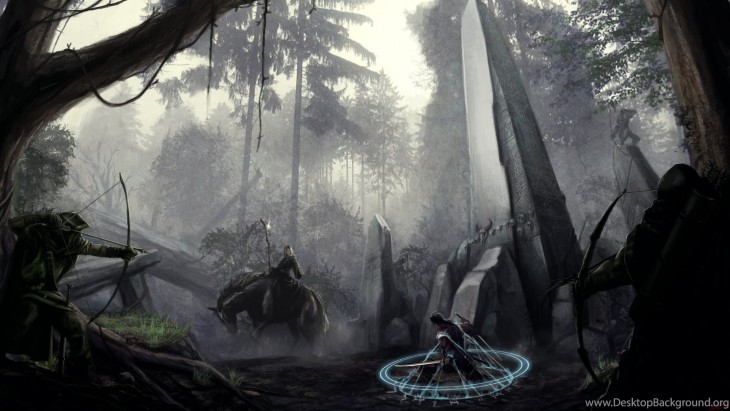Three Tips to Writing When You Just Can’t

Pick a character. I’m the shady ranger on the far left.
Good morning, Readers!
As many creatives these days, it feels like the world is getting harder and harder to create in; so much tragedy, hatred, anger and inhumanity filling up the airwaves. Couple that with an uncertain future for many of us, who have been furloughed from our jobs due to the pandemic. It’s hard to get creative when the stress of trying to ensure we have a roof over our heads and food in our bellies is taking up so damned much of our physical, emotional and mental energy.
For many, what was once difficult — creating — is now almost impossible. I know I’ve been struggling a great deal with it, and based on the chatter I’m hearing from my friends and creative circles, I’m not the only one.
I have good days and terrible days, but I’ve managed to pull myself along in my creative work, and I figured I’d tell you how. Maybe it’ll help you get work done, too.
This, of course, comes with the usual caveat that all advice, especially as it pertains to any creative endeavour, should be taken with the largest possible grain of salt. What works for one person won’t work for everyone, or perhaps anyone else.
1. Take Care of Your Health
This means exercising, eating well and taking your medications. If you have the access to it, there is nothing like taking a long walk in nature. I’m very grateful that where I live has a lot of publicly accessible green space that I’m able to head out to when everything gets a bit much. There’s just something soothing about tall trees, birdsong, and no one around that helps melt the stress from me. For as long as the walk lasts, anyway.
It also means ensuring that you eat your veggies and drink water. It also means that you should prioritize your mental health.
Get enough sleep.
Mental and physical health are intricately intertwined. There are physical symptoms to mental health issues. An unhealthy mind bleeds into the body, and an unhealthy body negatively affects the mind. Both are vessels for your creativity. If any part of the unlikely, miraculous biological machine that makes up a person fails, creativity is that much harder to access and harness.
Take good care of yourself.

Meditate to this beautiful sunset.
2. Indulge In/Take Up a Different Creative Hobby
When I say take up a hobby, I mean take up a hobby. Do a thing that you like simply because you like it and it brings you joy. This not something you intend to make a side-hustle. This isn’t something you should be aiming to monetize. You don’t need the added stress of trying to make a living from yet another thing. And there’s no quicker way to sap the joy from something than making it your job.
No. Stop it.
I mean take up a hobby. Find something else to do that is free from any sort of pressure. If it’s doodling, do that. Sewing? Sculpture? Learning to play an instrument? Perhaps you’re more interested in photography. Whatever it is that forces you to focus on something creative other than your work or the world at large for a while, do that thing.
Let yourself get lost in the activity. You don’t have to be good at it. The only criteria is that you must enjoy it.
I find that finding a different kind of creative outlet, one that isn’t tied to the stress of earning a living or having to please anyone other than yourself, helps unlock creative blocks.

3. Show Up For Your Writing
Okay, this is one that is a little less kind. You have to develop the discipline in order to get your writing done. That means that sometimes, you have to chase your muse, wrangle that fickle little imp, and remind it that it works for you. You are the boss. That means you have to sit at your desk and write, even on days you aren’t really feeling it.
Note: There are legitimate reasons for being unable to write, and they ought to be taken into account. But ‘I don’t feel like it’ isn’t really an excuse. I mean, it is, but it’s not a good one.
Some people have word count targets that they aim for in a session. I am one of those folks. I try for a thousand words an hour with a minimum of one hour a day. They can be useful, but word counts aren’t the goal. Some days, I can barely break two hundred in a writing session.
What actually matters is not the word count, but that you sit down in your writing chair and write, even when it feels like attempting to draw blood from a stone.
Show up for your writing. Even on days when you just don’t feel like it.
These are the three things that have helped me the most to write in these uncertain times. Certainly, it’s going slower and feels more difficult of late, but these things have helped me a lot.
There was one prompt on my short story prompt request post, so I guess I’ll be doing a one-off. So, in month from this post, I will hopefully have a relatively decent short story to share with you all. If you wish to participate, here is the prompt:
She impatiently checked her watch, sighing and rolling her eyes as burning debris rained onto the ground around her.
Many thanks to Jaina for that prompt. Hopefully I’ll be able to come up with something!
When S.M. Carrière isn’t brutally killing your favorite characters, she spends her time teaching martial arts, live streaming video games, and cuddling her cats. In other words, she spends her time teaching others to kill, streaming her digital kills, and cuddling furry murderers. Her most recent titles include ‘Daughters of Britain’ and ‘Skylark.’ www.smcarriere.com
Lawrence Block gives some great writing advice in his book, ‘Telling Lies for Fun and Profit.’ One of the points that always stuck with me was about that you have to actually write:
“Thinking about writing isn’t work, and research isn’t work, and reading proof isn’t work, and meeting with publishers isn’t work, and talking on the phone isn’t work, and not even rewriting and editing are work.
Unless I can actually see a manuscript of mine getting further from the beginning and closer to the end because of what I’m doing, I’m not entirely capable of regarding the task I’m performing as work.”
Now, the very next thing he says is:
“Understand, please, that I KNOW better.”
He’s just making the point that putting your butt down in the chair, and typing out words on a story, is actually writing. Whether your muse is talking to you that day, or not.
It’s a really helpful book (as Sue Grafton says in the introduction).
I haven’t written in almost a week and it’s been depression as hell. This came at a time I needed it most. Thank you.